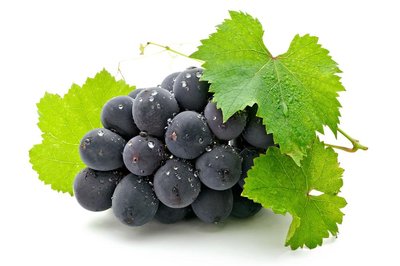Reasons for grape cracking and improvement methods

The ripening period of open field grapes is the period of concentrated precipitation during the year, and fruit cracking often occurs. Its manifestation is: the fruit peel cracks, the juice overflows, and the wound is prone to infection with mold under high humidity, causing decay, attracting pests such as beetles, bees, flies, and aphids to suck on the juice, affecting the yield and quality of grapes, and directly reducing the commercial value of grapes.
1,、 Reasons for grape cracking
1. After the grape inflates, it enters the color transition period, and the skin stops growing, while the inner cells of the fruit elongate faster, compressing the outer skin and thinning the skin. At this point, continuous rainfall leads to excessive water absorption and excessive swelling of cells, resulting in fruit cracking.
The skin tissue of grapes is fragile, and the strength of the skin weakens with the increase of fruit maturity.
2. Calcium deficiency leads to fruit cracking. Calcium participates in the composition of cell walls in the form of pectin calcium. Lack of calcium prevents the formation of cell walls, affecting cell division and hindering the formation of new cells. Calcium deficiency can also cause reverse curling of grape leaves, increase the rate of grape fruit cracking, decrease fruit hardness, and be resistant to transportation and storage.
3. The plant grows vigorously with poor ventilation and light transmittance, and there is no setting of ears and fruits. In the later stage, fruit growers use fruit expanding agents, causing fruit grains to expand and compress each other, resulting in fruit cracking
4. If the concentration of ripening agents is too high during the color change period, fruit cracking may also occur.
2,、 Measures to prevent grape cracking
1. Balance soil moisture. During drought, timely watering is necessary to prevent rainwater accumulation and waterlogging after rain.
2. During the fruit color change period, watering should follow the principle of "a small amount multiple times" to avoid a decrease in transpiration rate and an increase in fruit swelling caused by high temperature and humidity, resulting in fruit cracking.
3. After fruit setting, timely thinning and fruit setting, adjusting the plant load, ensuring moderate tightness of fruit ears, and reducing the formation of fruit cracking due to mutual compression of fruit grains.
4. Timely supplement calcium fertilizer throughout the entire reproductive period.
Pay attention to the balance of nutrients during top dressing. In the early stage, balanced fertilizer can be used. Pay attention to the application of phosphorus and potassium fertilizers during fruit expansion. Chelated calcium fertilizer can be used in conjunction with bagging before each expansion. Timely supplementation of calcium during the fruit expansion period can enhance tree vigor and fruit peel toughness, and prevent the occurrence of fruit cracking.
Calcium can stabilize cell membranes and maintain cell wall structure in plants. Supplementing calcium fertilizer can strengthen the fruit peel, but calcium supplementation is not equivalent to not cracking the fruit. It only enhances the toughness of the peel and reduces the cracking rate.
5. When using ripening agents, it is recommended to use them when 5% to 10% of the single grape fruit grains turn color. It is generally recommended not to use ethephon and abscisic acid alone, but can be used in combination with other agents.
The content of this article is organized from the internet. For infringement, please contact to delete it.
- Prev:nothing;
- Next:Application of Plant Growth Regulators in Fruit Trees - Yangmei

 中文
中文






